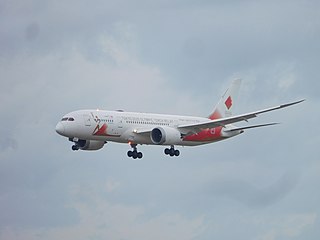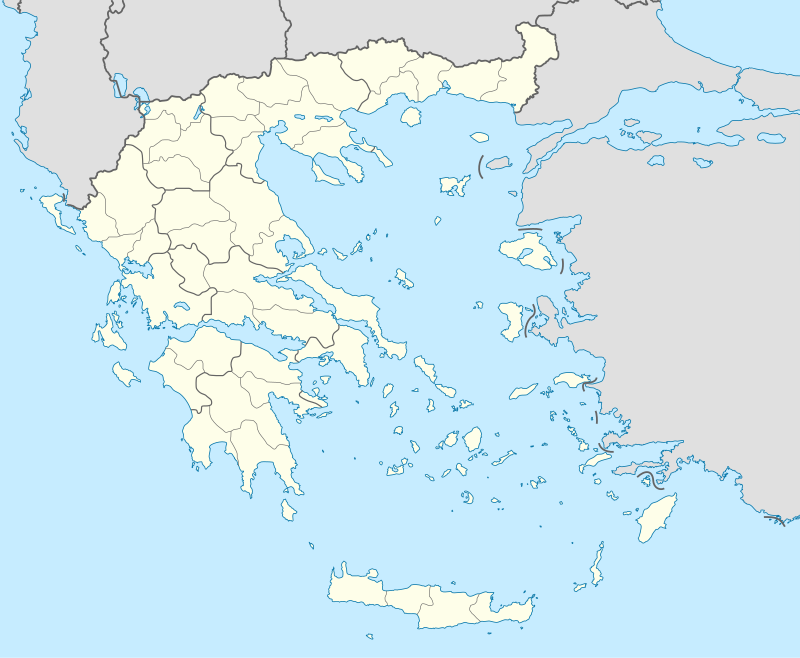The Olympic flame is a symbol used in the Olympic movement. It is also a symbol of continuity between ancient and modern games. Several months before the Olympic Games, the Olympic flame is lit at Olympia, Greece. This ceremony starts the Olympic torch relay, which formally ends with the lighting of the Olympic cauldron during the opening ceremony of the Olympic Games. The flame then continues to burn in the cauldron for the duration of the Games, until it is extinguished during the Olympic closing ceremony.

This is a list of dialing codes in Greece. The first digit represents the type of service. 1 is used for short codes, 2 for geographical numbers, 5 is used for inter-network routing purposes and VPNs, 6 for mobile services, 7 is reserved for universal access numbers, 8 for reduced-fee services, 9 is used for premium rate services. All dialable numbers are ten digits, except for short codes, 807-XXXX used for calling card access codes, and numbers in the 5 range, used for routing purposes and not dialable by end-subscribers.
Greek vehicle registration plates are composed of three letters and four digits per plate printed in black on a white background. The letters represent the district (prefecture) that issues the plates while the numbers range from 1000 to 9999. As of 2004 a blue strip was added on the left showing the country code of Greece (GR) in white text and the Flag of Europe in yellow. Similar plates but of square size with numbers ranging from 1 to 999 are issued for motorcycles which exceed 50 cc in engine size.
The 2007–08 Greek Football Cup was the 66th edition of the Greek Football Cup. 69 club entries were accepted for the competition. The competition culminated with the Greek Football Cup Final, held at Kaftanzoglio Stadium, on 17 May 2008. The match was contested by Olympiacos and Aris, with Olympiacos winning by 2–0.

The 2006–07 Greek Football Cup was the 65th edition of the Greek Football Cup, competition. That season's edition was the first to be entitled "Hellas On Line Greek Cup". The competition started on 26 August 2006 and concluded on 5 May 2007 with the Final, held at the Panthessaliko Stadium. AEL won the trophy with a 2–1 victory over Panathinaikos.
The 2005–06 Greek Football Cup was the 64th edition of the Greek Football Cup, competition. This season's edition was the first to be entitled "SINCO Greek Cup" after SINCO Insurance Brokers. The competition started on 20 August 2005 and concluded on 10 May 2006 with the Final, held at Pankritio Stadium. Olympiacos won the trophy with a 3-0 victory over AEK Athens.

The 2008 Summer Olympics torch relay route involved 21 countries where the Olympic torch was carried between its lighting in Greece in March 2008 and the Olympic opening ceremony in China's host city of Beijing in August 2008. The relay took place in four separate legs: in Greece, an international leg, in the Special Administrative Region of China, and in mainland China.
Athens Airways was a Greek regional airline, headquartered in Koropi, Athens. The airline used to connect Alexandroupoli, Athens and Thessaloniki with some Greek islands, as well offering chartered flights. The airline was founded in 2008 and launched scheduled flights on 31 January 2009.

The 2012 Summer Olympics torch relay was run from 19 May until 27 July, prior to the London 2012 Summer Olympics. The torch bearer selection process was announced on 18 May 2011.

The 2010 Summer Youth Olympics torch relay was run from 23 July until 14 August 2010, prior to the 2010 Summer Youth Olympics held in Singapore. The torch relay was termed The Journey of the Youth Olympic Flame, or JYOF, by the Singapore Youth Olympic Games Organising Committee (SYOGOC). It began with the traditional flame lighting ceremony in Olympia, Greece on 23 July 2010, and was followed by a 13-day round the world tour across five cities, namely Berlin, Germany; Dakar, Senegal; Mexico City, Mexico; Auckland, New Zealand; and Seoul, South Korea. Following the international leg, the torch arrived in host city Singapore on 6 August 2010 for the domestic leg.
The 1948 Summer Olympics torch relay was run from 17 July until 29 July 1948, prior to the 1948 Summer Olympics, held in London, United Kingdom. The relay was nicknamed the "relay of peace". It was only the second occasion that a torch relay was held for the Olympics; the first was at the 1936 Summer Olympics.
The 1976 Summer Olympics torch relay celebrated the first time that a Canadian city had hosted the Games. Convention states that the flame should be lit at Olympia in Greece and then transported to Athens, making its way onwards to the host city. On this occasion a signal was sent via satellite to transmit the flame to Ottawa where it would then make its way to the 1976 Summer Olympics opening ceremony in Montreal and a second ceremony in Kingston, Ontario.
The 1968 Summer Olympics torch relay took part as part of the build-up to the 1968 Summer Olympics hosted in Mexico City, Mexico. The Olympic flame was lit in Olympia, Greece, and retraced the steps of Christopher Columbus, discoverer of the New World. This theme celebrated the link between Latin-American and Mediterranean civilizations.

The 2000 Summer Olympics torch relay was the transferral of the Olympic Flame to Sydney, Australia, that built up to the 2000 Summer Olympics. The torch travelled to various island nations as part of a tour of Oceania before beginning an extensive journey around Australia. For the first time the Flame was taken underwater, with a special flare-like torch taken on a dive down to the Great Barrier Reef. At the opening ceremony the cauldron was lit by Aboriginal athlete Cathy Freeman.

The 2014 Winter Olympics torch relay was run from October 7, 2013, 123 days prior to the Sochi 2014 Winter Olympics, until February 7, 2014, the day of the opening ceremony at Sochi. In Russia the relay traveled from Moscow to Sochi through 2,900 towns and villages across all 83 federal subjects of Russia by foot, car, train, plane, and troika for over 65,000 km of journey. The event became the longest relay in Winter Olympics history.

The 2018 Winter Olympics torch relay was run from October 24, 2017, until February 9, 2018, in advance of the 2018 Winter Olympics. After being lit in Olympia, Greece, the torch traveled to Athens on 31 October. The torch began its Korean journey on 1 November, visiting all regions of Korea. The Korean leg began in Incheon International Airport: the torch travelled across the country for 101 days. 7,500 relay runners participated in the torch relay over a distance of 2,018 km. The torchbearers each carried the flame for 200 metres. The relay ended in Pyeongchang's Olympic Stadium, the main venue of the 2018 Olympics. The final torch was lit by figure skater Yuna Kim.

The 2020 Summer Olympics torch relay was held from 12 March 2020 and ended on 23 July 2021. After being lit in Olympia, Greece, the torch was handed over to the Olympic shooting Gold medallist Anna Korakaki, who became the relay originating Olympian woman of the 2020 Summer Olympics torch relay. It was then transported to Athens on 19 March by official airliner Japan Airlines. The Japanese leg began in Fukushima, and is scheduled to end in Tokyo's New National Stadium, the main venue of the 2020 Olympics. It makes a tour of Japanese cities, including all 47 prefecture capitals. The torch is even scheduled to go to two remote island groups which are part of Tokyo. The end of the relay was the finale of the 2020 Summer Olympics opening ceremony on 23 July 2021. Toyota, NTT, ENEOS, Nippon Life, JAL, ANA and Japan Post Holdings are the presenting partners of the relay, with the slogan being "Hope Lights Our Way".
The 2021–22 Greek Football Cup was the 80th edition of the Greek Football Cup. The winner of the Cup qualified for the next season's Europa Conference League third qualifying round.
The 2024 Summer Olympic torch relay will run from 16 April 2024 until 26 July 2024. After it is lit in Olympia, Greece, the torch will then travel through Greece, arriving at Athens on 26 April. It will sail across the Mediterranean on the three-masted barque Belem to Marseille on 9 May and begin its travel across France. The French leg will end during the Opening Ceremony when the Olympic cauldron will be lit. It is expected that the Paris 2024 cauldron will be erected at the Jardins du Trocadéro stadium.



















